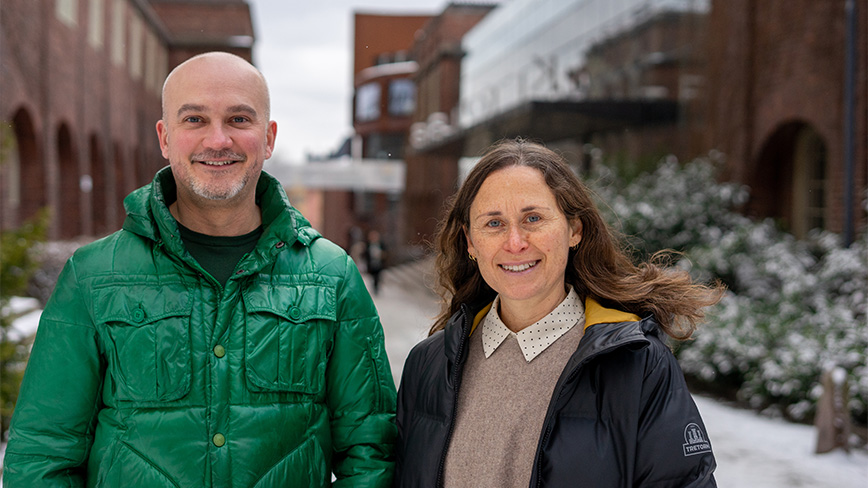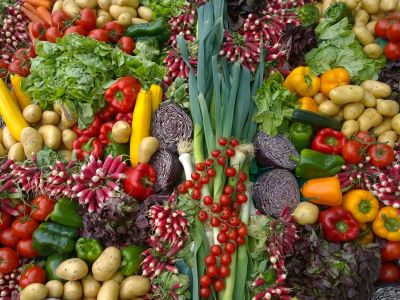New research centre shaping the future of food

KTH FOOD is a new research centre for sustainable and healthy food systems which aims to engage and align the education, research, and outreach competences at KTH towards a sustainable and healthy food system.
“Food systems have a huge impact on the environment. We know that it contributes largely to greenhouse gas emission, water use and the decline of bio-diversity,” says Francisco Vilaplana, associate professor at the Division of Glycoscience and director of KTH FOOD.
The food system is the third largest industry in Sweden. As a technical university with strong ties to industry partners, it is only natural for KTH’s researchers to be involved in shaping innovation and knowledge within the food sector. In addition to the environmental impact of food production – the second consequential research area for the centre is health.
“The connection between food and health is very important and we know that nutritional choices and diet is behind some common chronical diseases like metabolic syndrome, diabetes and obesity. We want to mitigate, change and transform the way food is produced,” says Francisco Vilaplana.
Four main research areas
The new centre will engage researchers from all of KTH, interested in KTH FOOD’s four research and impact areas: functional food products and health, logistics and consumption, sustainable food production and circular food processes. Initially, there will be funds for interdisciplinary postdoc research projects and calls will go out for team leaders for research groups in the four impact areas.
“We want to populate this center with what we call KTH FOOD faculty, so anyone at KTH doing research on food or things that could be applied to food systems can become a KTH FOOD faculty,” says vice-director of KTH FOOD Rebecka Milestad and continues:
”We draw on the core competences of KTH. We are good at sustainability and environmental assessment, we are good at material sciences, digitalization, industrial management and life sciences. There are a lot of cross-cutting themes in relation to these areas that are food related that we can align together.”
Innovation node for food tech
The long-term goal is to attract external funders as well and become a permanent research centre that contributes with high impact research outcomes, high impact papers and positioning papers on how the food system should transform and how the food of the future should look like. Francisco Vilaplana and Rebecka Milestad hope to position KTH as an innovation node for food tech in the Nordics and the world.
“If you compare the innovation in the food sector with other sectors like pulp and paper or the IT sector, the innovation in the food sector is quite low in Sweden compared to other countries like Denmark, Ireland or the Netherlands. So here we have such a huge potential to really increase the innovation level in Sweden’s food industry,” says Francisco Vilaplana.
He and Rebecka Milestad have been working on the project for a long time and are glad that the centre is finally up and running.
”It feels very good because we have been spending time on this for at least five years. Time that we don’t have, but we have devoted it anyway because we think that it’s so exciting and important,” says Rebecka Milestad.
First event on March 7
But the hours the noticeably enthusiastic researchers have put in have apparently been time well spent. According to Rebecka and Francisco, there has already been great interest shown from external funding agencies, different companies, civil society and municipalities in the Stockholm region. Now, what KTH FOOD needs is researchers, and with an event planned for March 7 they hope to engage researchers from all over KTH.
“We are creating a research center to basically catalyze high impact research in these areas, but we need the researchers to take the baton now and test their ideas and methods within the center and drive it forward,” says Francisco Vilaplana.
Rebecka Milestad adds that getting involved in KTH FOOD is a great opportunity for KTH researchers to get together and find new funding. Driving food research forward is also necessary for KTH to meet the sustainability development goals.
“If KTH wants to be a world leading university in sustainable development, we have to include the food sector into our research because it is such a big part of the environmental and sustainability issues that we have today,” says Rebecka Milestad.
Text: Jon Lindhe
Read more about the centre at KTH FOOD or contact Francisco Vilaplana or Rebecka Milestad .

